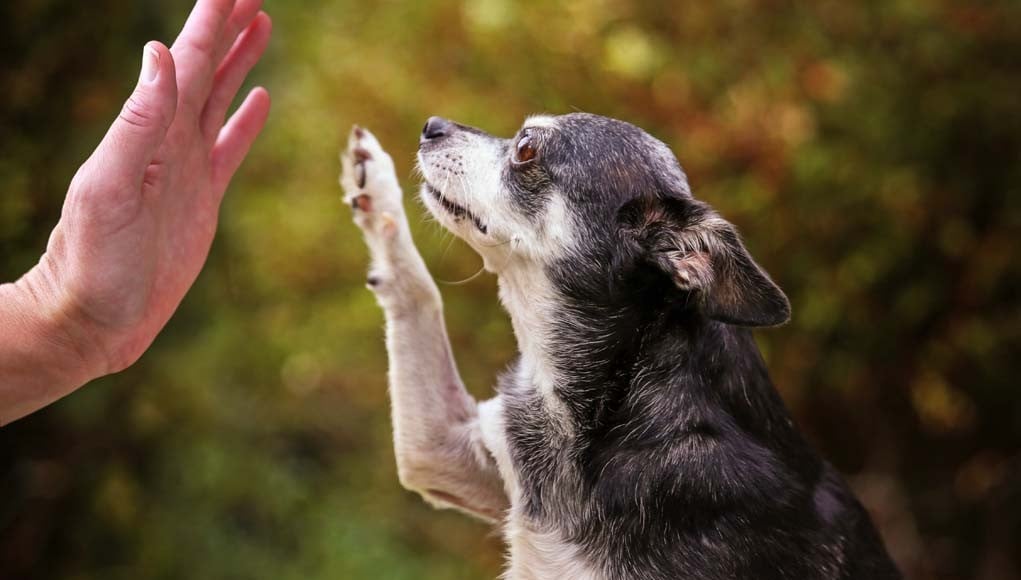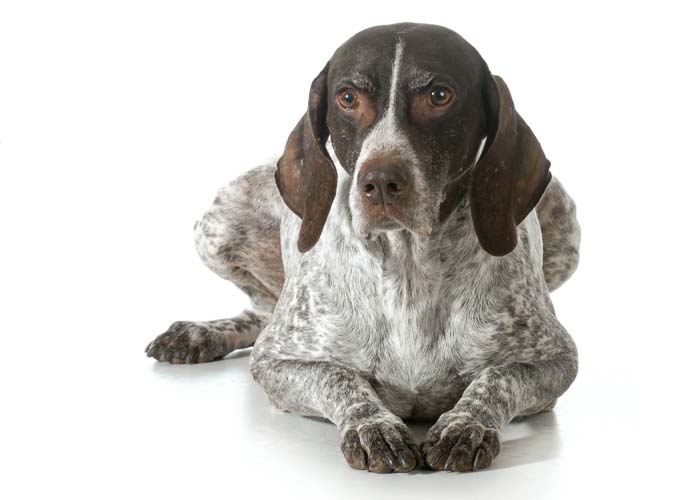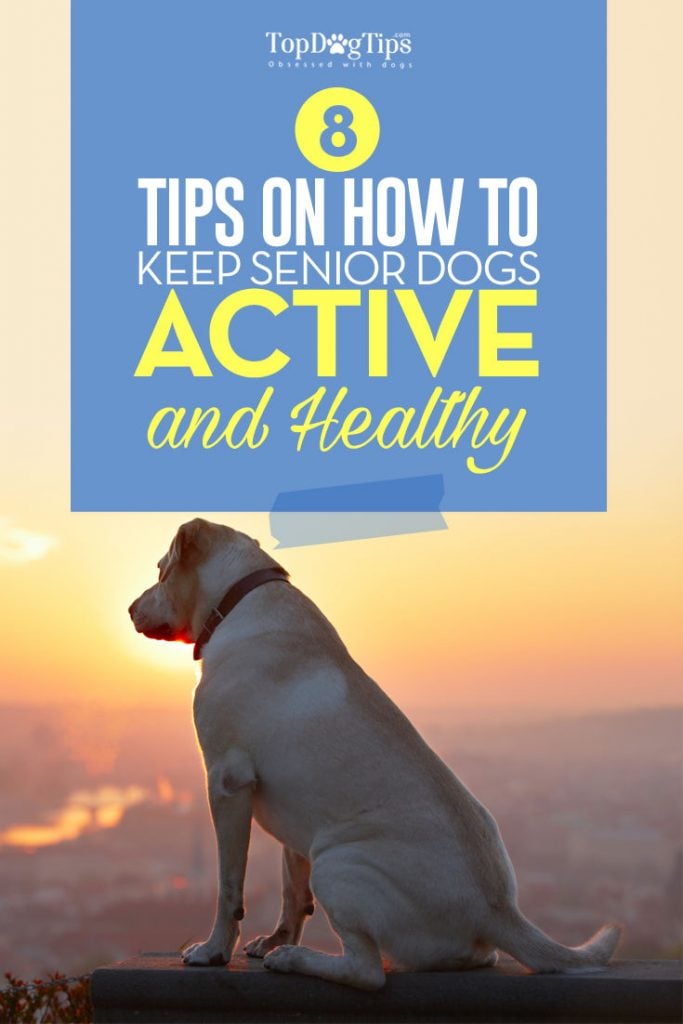 Dogs bodies deteriorate as they grow older – just like ours. Keeping your senior dog active is the best way to keep his body healthy and strong. Of course, strenuous exercise like hiking, biking and running may not be suitable for your older dog. Many pet owners feel that their dog doesn't need as much exercise as he ages because his body will require more rest. It's true that he'll need more rest, but it's more important than ever to keep him active as well. Finding the balance between the two is the tricky part.
Dogs bodies deteriorate as they grow older – just like ours. Keeping your senior dog active is the best way to keep his body healthy and strong. Of course, strenuous exercise like hiking, biking and running may not be suitable for your older dog. Many pet owners feel that their dog doesn't need as much exercise as he ages because his body will require more rest. It's true that he'll need more rest, but it's more important than ever to keep him active as well. Finding the balance between the two is the tricky part.
Dogs can age as gracefully as we can. With proper nutrition, regular exercise and some extra love and care, your senior dog will be just as happy in his golden years as he was when he was a puppy. Younger dogs will get up and play with their toys or run around by themselves outdoors. Your older may need a bit more motivation.
Keeping your senior dog active will aid in joint health, digestive health and will also prevent excessive weight gain. Just like us, your dog's metabolism will slow as he ages. You'll need to keep him active and reduce his calorie intake to keep him from becoming overweight.
RECOMMENDED: 6 Vet’s Tips on How to Care for Senior Dogs
Ways to Keep Your Senior Dog Active
1. AKC Canine Health Foundation
The American Kennel Club Canine Health Foundation has written a great piece on how to properly condition your older dog to keep him active. It addresses the importance of keeping your senior dog active, and some great ways to help your pet stay active in his later years.
It's important to realize that if your dog has not been active for a while, he'll need proper conditioning before participating in regular exercise. You'll need to start slow with short walks and gradually move up to long walks around the block. If you do too much too quickly with a senior dog you run the risk of causing him serious injury.
- When your dog is ready for training and conditioning, you should start slowly, gradually increasing the intensity and length of exercise. “The muscle capacity for work is typically decreasing in older dogs due to mild sarcopenia,” explains Dr. Wakshlag. “They don’t quite have the energy powerhouses in the muscle cells that they did when they were younger.”
2. Manufacturer Canidae Shares Their Tips
The dog food manufacturer Canidae has a wonderful blog on their site that includes posts for all things dog related. This particular post by Linda Cole gives some great tips to help your senior dog stay active. She perfectly explains that your dog will still be able to participate in the activities that you both love, you'll just have to tone it down a bit.
- As dogs age, they may not be able to keep up a rigorous exercise schedule. That doesn’t mean you have to stop running, biking, hiking or any other activity you enjoy doing with your dog, but it does mean you may need to slow things down for your senior dog’s sake.
3. Vet's Tips from Dr. Peter Dobias
Dr. Peter Dobias, DVM, writes an interesting blog with tips and educational information for pet owners. The post I read this week gave a lot of great tips to for keeping your dog mobile in his golden years. There are some great pointers about supplements and exercises that are very beneficial to senior dogs.
Often, swimming is mentioned as a great exercise for senior dogs as it is must less stressful on the joints compared to running. Dr. Dobias explains that although swimming is a great form of exercise, too much swimming can be detrimental to an aging dog's body.
- While swimming or underwater treadmill exercise can be very beneficial in maintaining mobility, dogs who swim too much can develop lumbar-sacral and shoulder tightness. Tight shoulders often lead to mid-thoracic spine congestion, which is energetically related to the function of the lungs and heart.
4. The Dog Blog Talks About Keeping Senior Dogs Active
For more great tips for keeping your senior dog active, you can check out The Dog Blog on dogIDs.com. It shares some fun and unique ways to engage your older dog while also helping him stay physically fit. I especially like the ideas of letting your pet sniff on walks and training him to do new tricks.
- “Old dogs can absolutely learn new tricks and not only enjoy it, but stand, bend, stretch and move quite a bit in the process,” said Kirsten Hrobsky, director of operations for the pet care provider, The Spot Experience. She said trick training is a good way to keep older dogs mentally sharp and physically moving.
5. Another Manufacturer's Advice for Owners of Elder Dogs
Buddy Beds is a company that makes orthopedic memory foam dog beds. Although you may think that these beds are designed for senior dogs, they are actually quite beneficial to dogs of every age. The company also includes a nice blog on their site full of information on caring for your canine companion.
This blog post gives four pointers for keeping your senior dog active. I was impressed that this post addressed the issue of obesity. Even if your pet can only participate in minimal amounts of exercise (and that's something you'll need to discuss with your vet), a little bit is better than nothing when it comes to preventing obesity.
- Dogs that do not exercise are more prone to obesity. Obesity leads to all sorts of health issues, including, but not limited to, diabetes, cardiac problems, and joint and bone disorders. If your dog has one health issue that prevents her from exercising, that lack of exercise can create more, in some cases much more serious, health problems.
6. Two Little Cavaliers on the Importance of Playing
I found some more great tips on the blog Two Little Cavaliers. One tip they share is the importance of play for senior dogs. Most pet parents don't think about this. Many owners forget that all dogs love to play – not just young dogs.
Play is a great way to exercise with your pet. It's fun and easy!
- Generally speaking, even the oldest dog can be coaxed into playing at least a little bit. If your senior dog has a favorite toy, bring it out and try to get them to have a 5 minute play session. Just tugging on a rope, dragging their favorite stuffed animal around, or playing a short game of fetch for a few minutes is enough to keep the blood pumping somewhat. It also stimulates their mind.
7. AVMA's Advice on Senior Dog Care
If you're looking for more tips on caring for your senior dog, the American Veterinary Medical Association (AVMA). They cover frequently asked questions about the definition of a senior dog, the health problems that can affect older dogs and how to help your senior dog stay happy and healthy.
You should always consult with your veterinarian before making any major changes to your dog's daily life. Whether you're thinking about changing his diet or his exercise routine, you need to clear it with your vet first. This post gives some great advice about stiffness and arthritis in your pet and what you can do to help him. Ultimately, helping him cope with these conditions will help keep him as active as possible.
- Signs of arthritis often are similar to signs of normal aging, so if your pet seems to have any of these symptoms for more than two weeks, the best thing to do is to have your veterinarian examine them, and then advise you as to what treatment plan would be best to help your pet deal with the pain.
8. Facebook Users Talk About Caring for Old Dogs
StubbyDog is another great blog resource for dog owners. I wanted to leave you with this post this week, because I think it's a fantastic example of the pet parent community. This blog is a compilation of comments from Facebook users in response to the question: What’s your best piece of advice for living with senior dogs?
- Don’t make assumptions, but look at the dog in front of you. When I adopted a senior dog, my first dog in 25 years, the facility told me he’d “probably want to live out his golden years on the couch.” Five years later, this dog can still beat me down a flight of stairs!
~ Barbara Saunders















